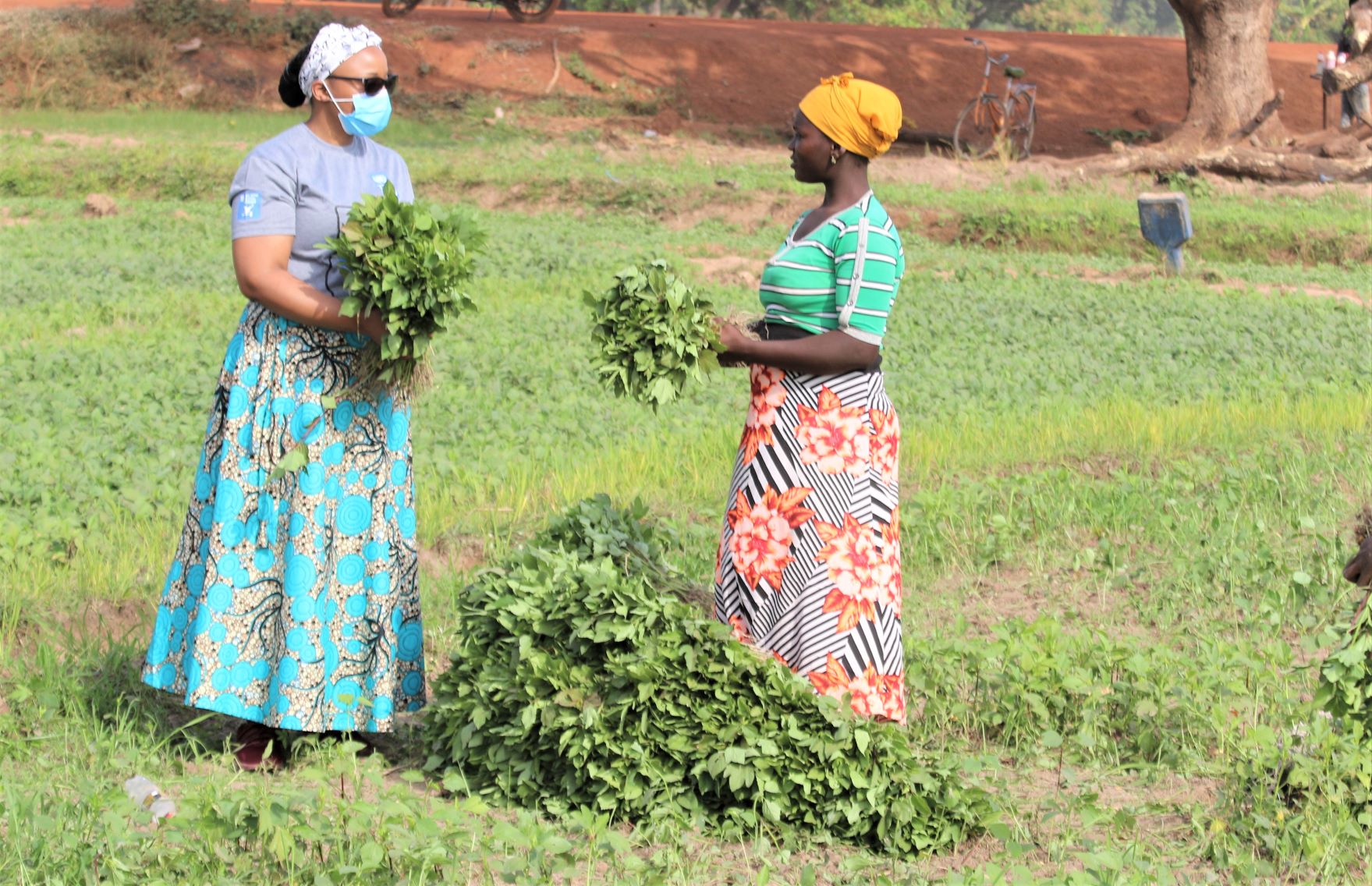Empowering women in climate action with alternative livelihood options

Like many people in rural communities in Ghana, Mali Yakubu and her family in Tampion in the Northern Region are not able to farm during the dry season. This situation is deteriorating as agriculture is a climate-sensitive sector and the Northern zone of Ghana is more impacted by climate change.
Subsistence female farmers like Mali often bear much of the brunt of climate change impacts—drought, desertification, erosion and flooding, because they are mostly at the frontline, striving to feed their families. Due to limited access and control of resources such as irrigation facilities, land and technology, and limited income opportunities, women like Mali are struggling to adapt.
- Advertisement -
But since February 2020, Mali is among nearly 200 people including 20 men in Tampion, who have been trained by a local NGO, Transforming Rural Women and Youth Life Foundation (TRUWAYLIF), to have an alternative livelihood option through agro-processing scheme. With this support, the women can now operate milling machines and process agricultural produce such as soya beans, shea and rice into various food products including soya milks, kebabs, soya floor and shea butter, which they sell in the local markets for income.
- Advertisement -
“I produce about 5 bowls of soya kebab every week, which I mostly sell on market days and in the Tampion township. This dry season, unlike the other ones in the past where we were mostly idle, I might say I make some profits for the family upkeep”, Mali stated.
Besides income, the women and their families also consume the processed food products for good nutrition and use the shea butter as a cosmetic. Mali is part of the over 7,200 women in 24 communities supported with agro-processing facilities in four regions in Northern Ghana. This forms part of a 4-year climate change adaptation project, implemented by the Ministry of Environment, Science, Technology and Innovation, in partnership with the United Nations Development Programme (UNDP) and 46 local Non-Governmental Organizations (NGOs)/Civil Society Organizations (CSOs). The project, funded by the Adaptation Fund, aimed to build the resilience of more than 100,000 people to climate change impacts in 50 communities.
Undoubtedly, empowering women to adapt to climate change impacts is beneficial to society at large. That is why the preamble of the Paris Agreement on climate change challenges countries to promote gender equality and women’s empowerment, calling on them to adopt gender-responsive approaches. So have the Sustainable Development Goals (SDGs) especially SDG 5 recognized the need for women to be integral part of development processes and solutions.
- Advertisement -
In line with the above, during the implementation of the project, women were directly involved in the entire value chain of the dry season activities and livelihood interventions that include the agricultural processing schemes. In all, over 11,000 direct beneficiaries (60% women) have been introduced to climate change adaptation activities including other initiatives like cage and fish-pond farming; dry season gardening; and honey production, which are creating new income generating opportunities for the beneficiaries.
The 50 communities have also been provided with 145 boreholes, benefiting over 40,000 people mainly women and children. Amidst the COVID-19 pandemic, having access to clean water, just few meters away from home, instead of traveling miles to the river side, could not have come at a better time like this.
Moreover, ten (10) community dams have also been successfully rehabilitated, giving over 20,000 people more reliable access to water for irrigation and animal rearing throughout the year. Five additional dams are currently being rehabilitated to benefit more than 10,000 extra more people at risk of climate change. The project interventions have also promoted afforestation through tree nursery and tree planting activities to protect the river basins or water facilities.
“Without the dam, irrigation support & training, we would be unable to do this dry season farming, which benefits our children, provides food & sustains us’, admitted Abigail Samani, a dry season gardener in Bihinaayili community in the Savelugu District, Northern Region of Ghana.
The SDGs calls for partnerships, and with this project being completed, if more partners come onboard, initiatives like this one can be upscaled to fight climate change in many more communities in Ghana. This will help ease planetary pressures and build fairer societies for all.





- Advertisement -


